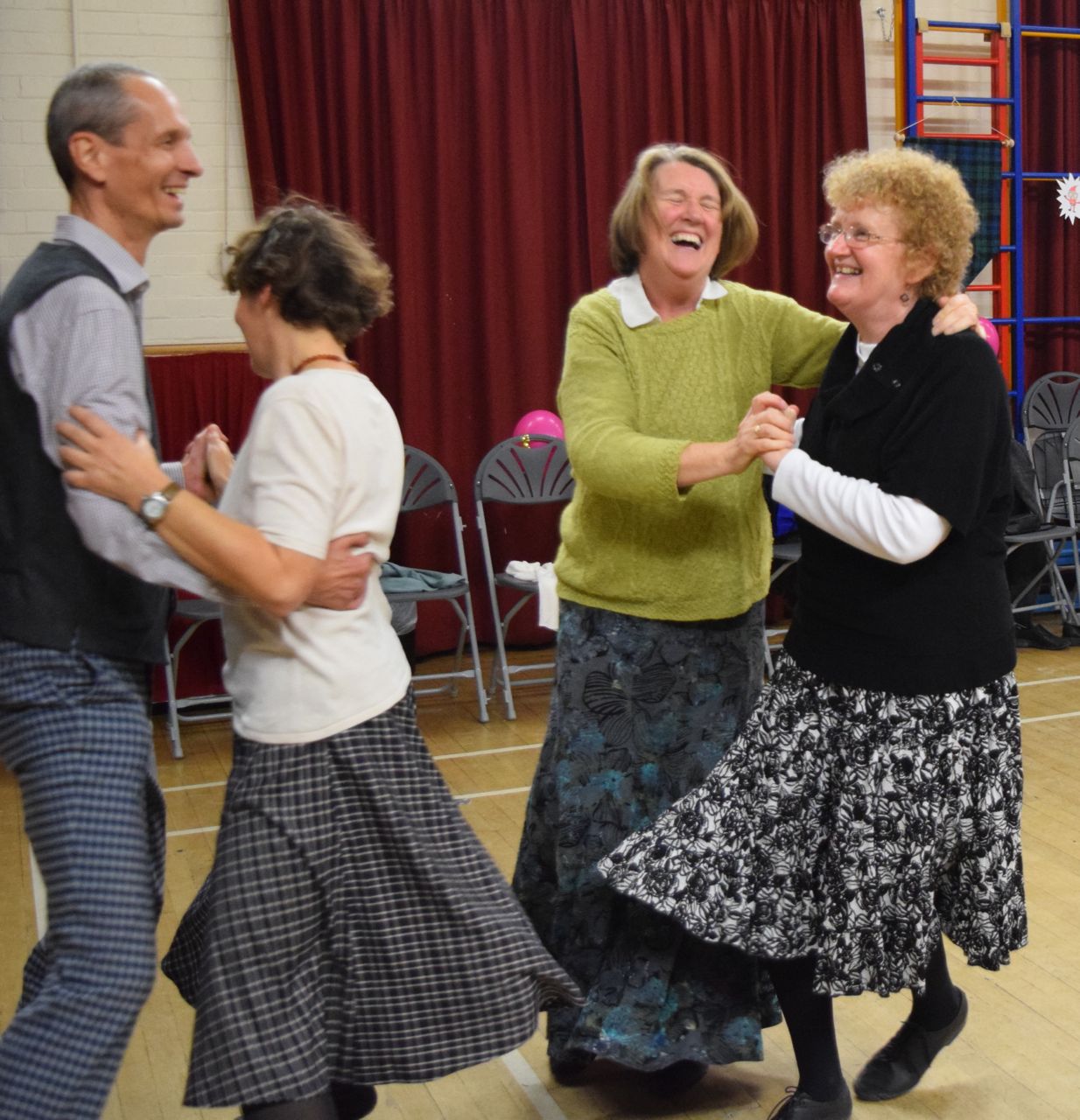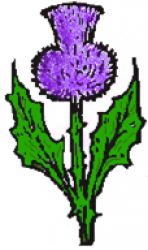WHAT IS SCOTTISH COUNTRY DANCING?
Scottish Country Dancing is a social dance form with its roots in ceilidh, barn dancing and other types of country dancing but which, with French balletic influence, has developed into a more refined and disciplined style with a wide and exciting range of formations and patterns. (It shouldn’t be confused with Highland Dancing, which is very different!)
Scottish Country Dancing Groups are found all over the UK and the rest of the world, so wherever you are, you can find somewhere to dance. As well as regular classes, most clubs hold regular events, such as ceilidhs, afternoon tea dances, formal evening dances and even more formal Balls, usually to the magic and joy of live music.
There are thousands of different dances – reels and jigs in quick tempo and the more elegant Strathspeys in slow time – ranging from very easy to highly complicated, i.e. something to suit everyone! They are usually danced in sets (groups) of 3 or 4 couples (sometimes 5 or more) and everyone dances not just with their partner but with everyone else in the set – and we change partners for every dance.
It’s a perfect dance form for those coming on their own. No one needs to come with a partner or friends. There are a limited number of steps to master. If you’ve enjoyed doing ballet, country dancing, Irish, ballroom or any other type of dance, it’s likely you’ll pick up the patterns and techniques quickly. If you’re new to dancing, you’ll get help from class teachers and more experienced dancers (contact us before your first visit to ensure there’s someone to help you).
Part of the joy of Scottish Country Dancing is that it caters for a very wide range of abilities and ages, from those with excellent technique and bundles of energy to those with less flexibility and speed. Technical expertise is not essential – being able to move in time to the music, being in the right place at the right time and interacting with other dancers is the key to having a great time!
Music at weekly classes is usually recorded but there are plenty of opportunities to enjoy live bands at day schools, dances and balls. Instruments played by highly skilled and talented musicians include the accordion, fiddle, piano/keyboard, drums – sometimes even a flute.
For more information:
www.rscds.org : select ‘Learn’ from the menu, then ‘What is Scottish Country Dancing and Music?’
For information of every aspect of Scottish Country dancing including cribs, videos, explanation of steps and formations and much more: www.scottish-country-dancing-dictionary.com .

